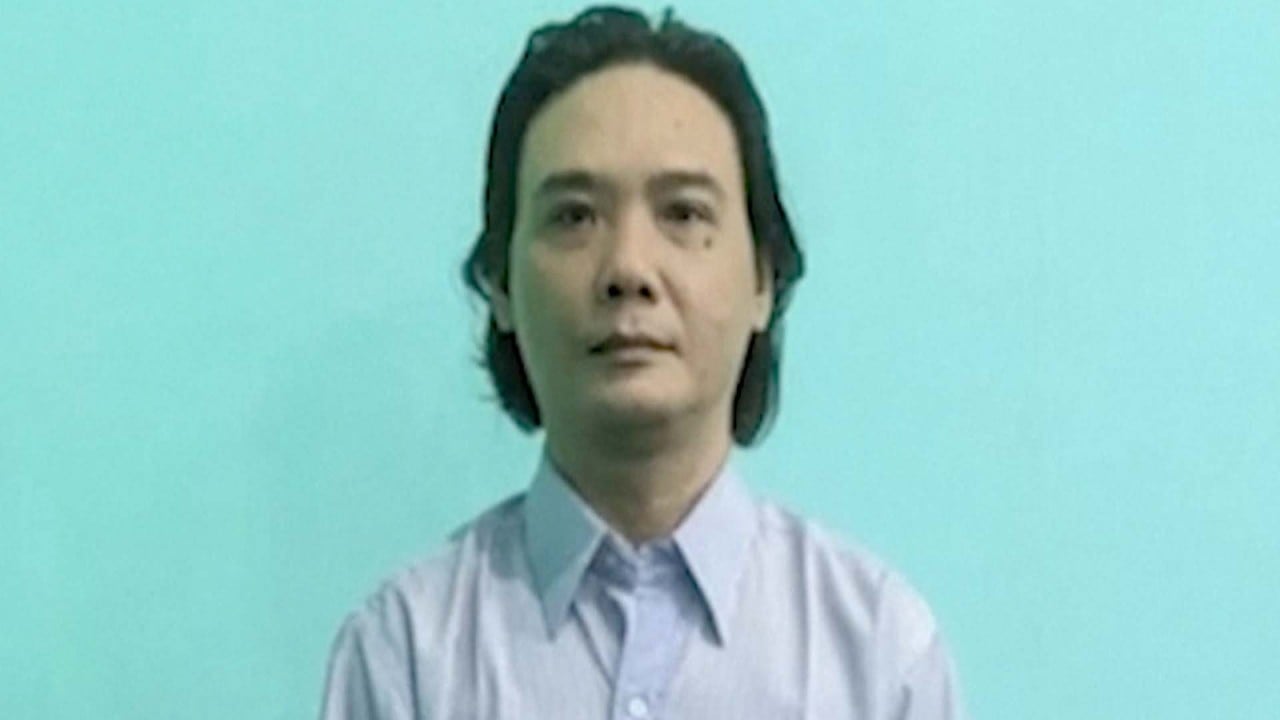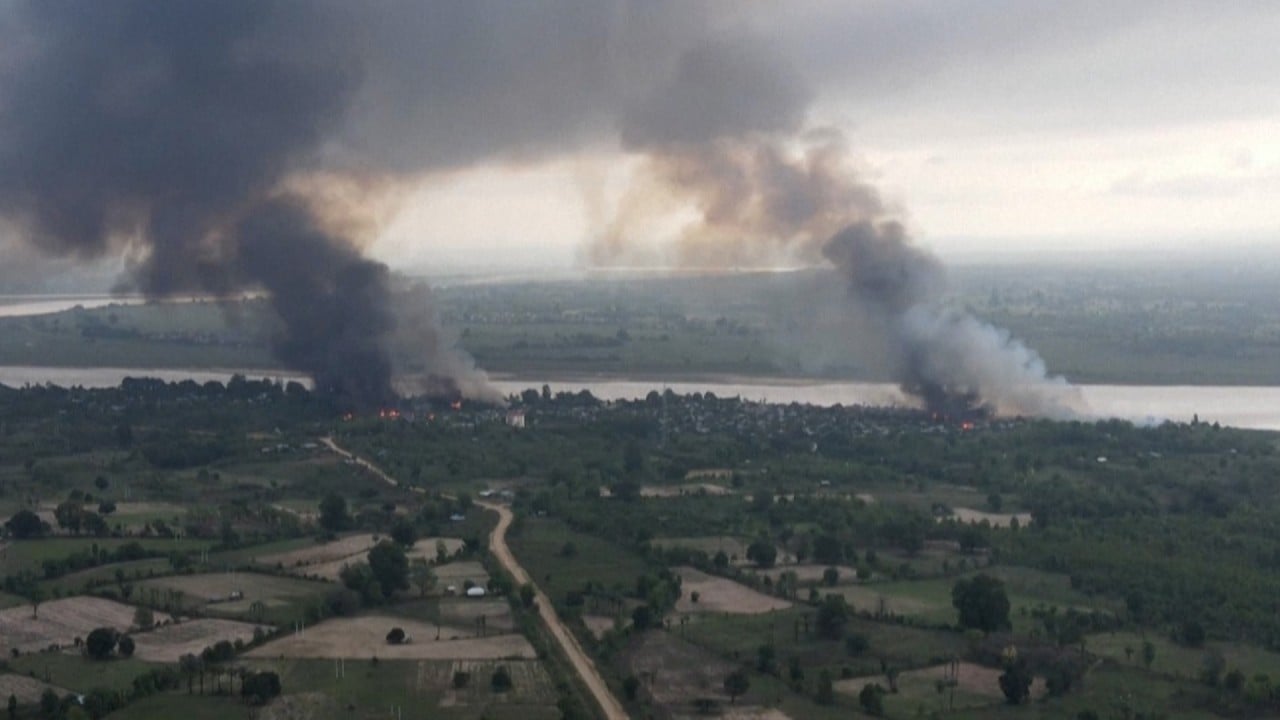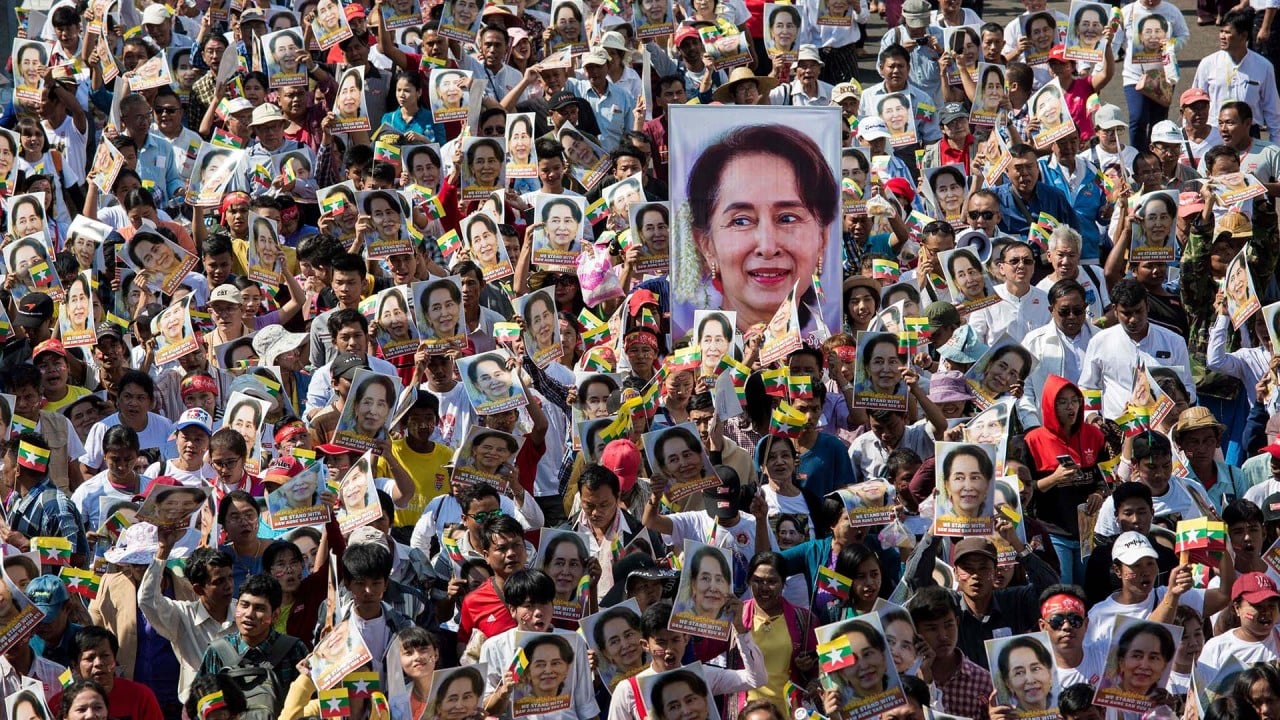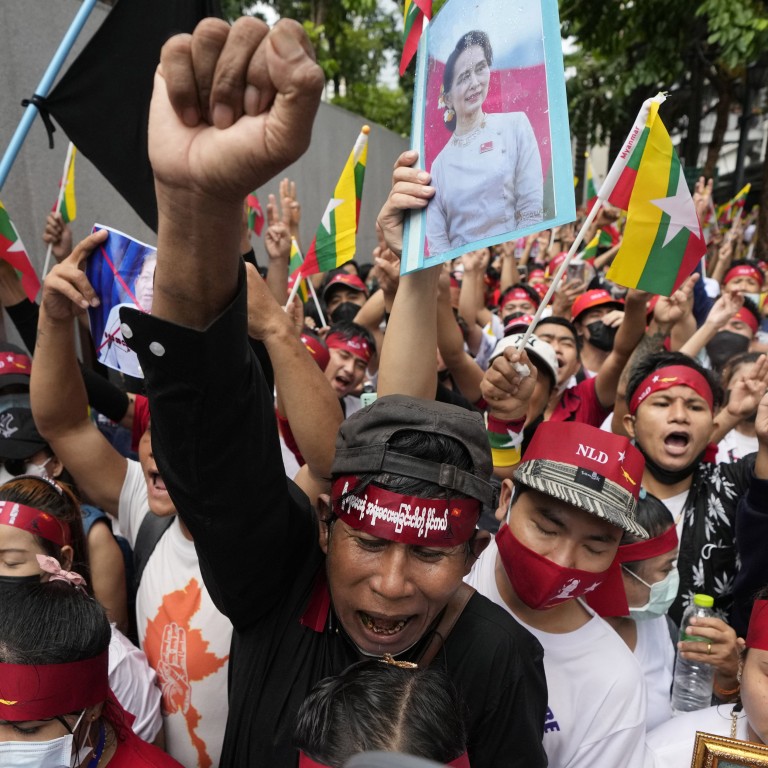
More violence in Myanmar feared as junta’s executions send ‘ruthless’ message to Asean
- The capital punishment of four democracy activists is a warning to the junta’s opponents and the global community for treating it like a pariah, observers say
- Its move has ‘wiped out any chance of reconciliation’ with civilians, one expert says, while calls are mounting for Asean to issue an ultimatum against its member state
By executing Kyaw Min Yu, Phyo Zeya Thaw, Hla Myo Aung and Aung Thura Zaw, the junta was likely expressing its “resentment” against its pariah status internationally, the experts said, adding that the move would likely stiffen anti-junta resistance.
Malaysia’s foreign minister Saifuddin Abdullah said in a press conference on Tuesday that the executions constituted “crimes against humanity”.
The junta announced the executions of the four men on Monday, without elaborating on how it would carry out the punishment. A junta spokesman said the executions were carried out lawfully and described them as “justice for the people”.
Phyo Zeya Thaw, a former member of detained civilian leader Aung San Suu Kyi’s National League for Democracy, and prominent democracy activist Kyaw Min Yu, also known as Ko Jimmy, were put to death for activities involving explosives, bombings and financing terrorism.
Hla Myo Aung and Aung Thura Zaw were handed the death penalty for the alleged murder of a woman believed to be an informer for the military.
Rights groups say these charges may have been trumped up and that the men were not given a fair trial.
Is Malaysia ‘setting a precedent’ for Asean by meeting Myanmar’s NUG?
Nyi Nyi Kyaw, a fellow in Germany’s Institute for Advanced Study in the Humanities, said the military was likely to have meted out the executions as it faces “unprecedentedly widespread and unrelenting” armed resistance.
According to figures provided by the civilian National Unity Government, there are at least 259 People’s Defense Force battalions with a total of about 80,000 to 100,100 members. Local media reports earlier this month said that anti-regime strongholds in Sagaing Region and Kayah State were producing home-made weapons.
Nyi Nyi Kyaw said the junta’s decision to defy calls against carrying out the executions stemmed from “a dictator’s logic that aims to shoot two birds with one stone”.
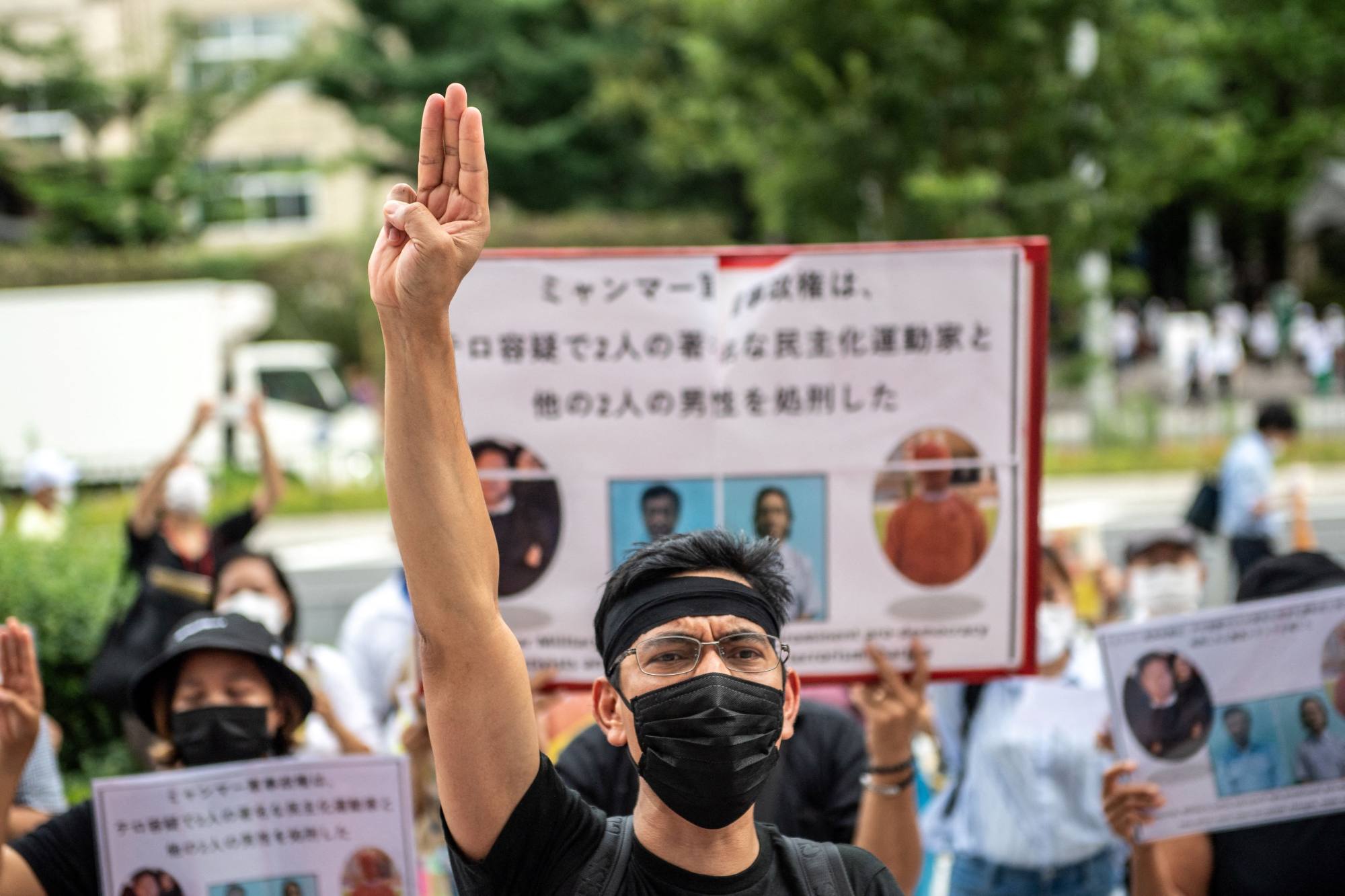
Most demonstrators have pursued nonviolent forms of protest, including acts of civil disobedience, labour strikes and public rallies, even as they face a brutal response by the authorities. As of 10 June 2022, the Assistance Association for Political Prisoners (AAPP) recorded that 1,929 people had been killed by the junta since the coup, while 11,004 people were under detention.
Ronan Lee, a doctoral prize fellow at Loughborough University in London, said the regime had to ramp up its brutality and tactics of terror as the generals were feeling “vulnerable” due to their inability to entrench their rule.
“The junta is increasingly concerned that they may never be able to effectively rule the country,” said Lee, author of Myanmar’s Rohingya Genocide: Identity, History and Hate Speech.
More opposition expected
The use of capital punishment has been particularly shocking because the military had resisted using it even as it continued a brutal suppression of dissent during its earlier stint in power from the late 1980s until 2011.
Lee said further executions and the targeting of civilians for arrests, violence and torture could be expected, as the junta was aiming to break the resolve of anyone who might actively oppose their rule.
“The junta has been ruthless in pursuing this objective, and junta tactics have involved scorched earth campaigns with indiscriminate killings, the burning of entire communities, and the forced displacement of tens of thousands of civilians in areas where there has been anti-coup activity,” he said.
There have been many killings of prisoners since the coup … What changed this week was that the junta admitted the killings
Lee added that the moratorium on Myanmar’s death penalty had been “a myth” since the junta undertook the coup and actively targeted civilians and peaceful protesters for killing. “There have been many killings of prisoners since the coup, and junta troops have actively killed opposition activists. What changed this week was that the junta admitted the killings,” he said.
Hunter Marston, an adjunct research fellow at La Trobe Asia based in Australia’s La Trobe University, said the junta’s ability to carry out the executions “echoes their total rejection of legal processes and their embrace of a more autarchic form of justice last seen under previous military rule”.
He added that the executions would only stiffen the resolve of the resistance to the junta’s rule. “By leaving no legal options for redress, the junta is only empowering its critics, and the death of these democracy icons will fan the flames of Burma’s democracy movement, adding to the long list of martyrs,” Marston said, using the former name for Myanmar.
Wang Yi’s Myanmar trip could derail Asean’s peace plan by ‘emboldening’ junta
Htwe Htwe Thein, an associate professor at Australia’s Curtin University, said the junta’s executions had “wiped out any chance of reconciliation”.
“Violence is going to grow and it is going to further destabilise the country,” she said, noting that this escalation of violence towards political opponents of the junta was a sign that the international community had “failed the people of Myanmar”.
She said governments and international bodies should urgently step up their call in condemning the violence and restoring peace and democracy in Myanmar.
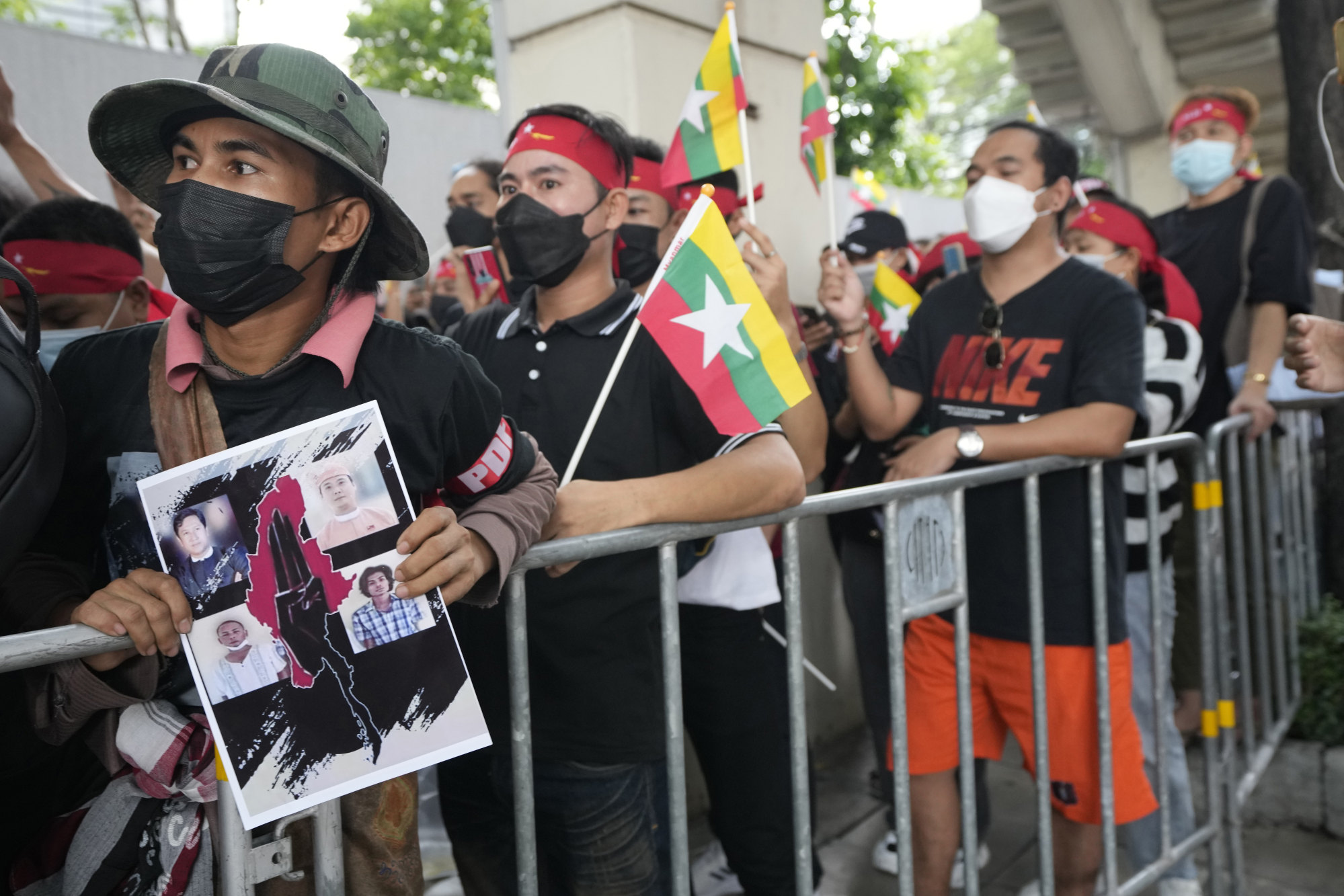
With the junta showing just how far it was willing to go to “cling to power”, Nyi Nyi Kyaw said Asean had to reconsider its “extremely dismal” diplomatic record. “The international community should also find other workable means like an effective arms embargo, in addition to issuing statements and imposing economic sanctions,” he added.
Malaysian foreign minister Saifuddin on Tuesday said the time had come for Asean to discuss the imposition of an “end game” for the implementation of the Five-Point Consensus.
He did not provide details during his speech, made alongside UN special envoy on the Myanmar crisis Noeleen Heyzer, but he said the matter would be discussed at an Asean foreign ministers’ meeting next week.
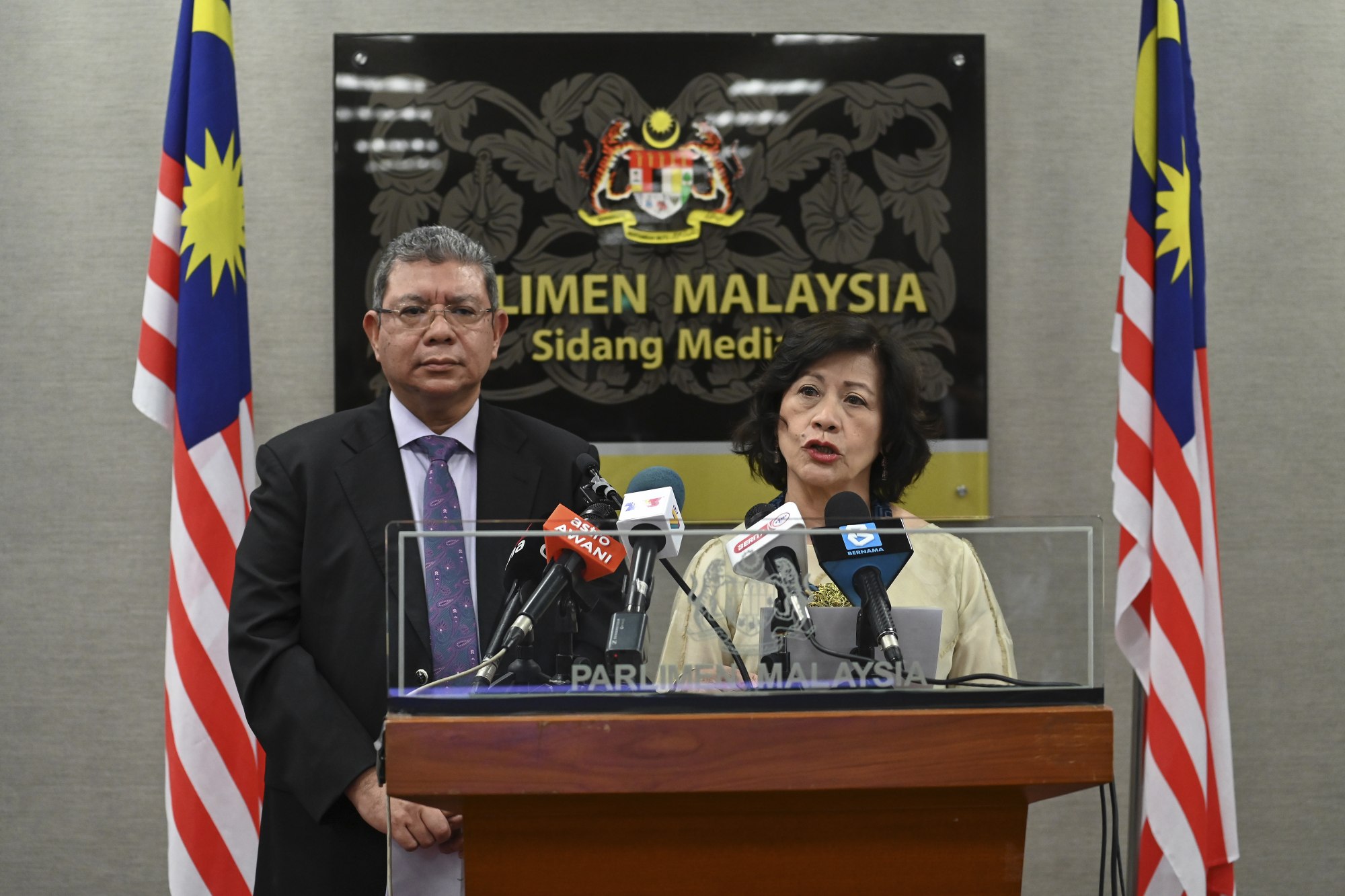
UN human rights chief Michelle Bachelet condemned the executions on Monday, saying it was carried out “with no regard for human rights”. She added: “For the military to widen its killing will only deepen its entanglement in the crisis it has itself created.”
Malaysian opposition leader Anwar Ibrahim on Tuesday described the executions as “a disappointing start to the week for democracy in Southeast Asia”, adding that the families of the executed had been denied the bodies of their loved ones and traditional funeral rites.
“The use of such draconian practices is not only a backslide for democracy in Myanmar, but an embarrassing pandering to the colonial vestiges of their former masters,” Anwar wrote on Facebook.
He said that Asean must make clear to the military regime in Myanmar that “such actions along with the deprivation of the people’s rights are unacceptable”.
Charlie Thame, assistant professor of international relations at Thailand’s Thammasat University, said however Myanmar’s military had a long history of intransigence to external pressure, including sanctions, diplomatic isolation, and accountability for crimes against humanity.
“It’s hubristic to think that Asean and others might be able to influence this rogue institution through negotiation and compromise,” Thame said.
Noting that the execution was part of the military’s “strategy of terrorism to try to subdue the population”, Thame added that it was worth bearing in mind that the military had a trial at the International Court of Justice for genocide, and had committed atrocities against the people of Myanmar “for generations”.
“Since the coup, they have shot peaceful protesters in the head, tortured people to death in custody, burned people alive, taken children hostage, used air strikes and attack helicopters against civilians,” he added.


